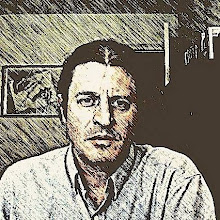 |
| Now Available |
How are ethics, morals, and laws related to communication and communication technologies? In what ways—and to what degree—do communication technologies shape, maintain, and/or alter moral practices and sensibilities regarding justice and the good? In this provocative and engaging collection, Corey Anton brings together noted scholars and media ecologists to address these questions and many more. A must have anthology for anyone seeking to understand how communication and communication technologies bear upon valuation and life more generally.
TABLE OF CONTENTS
INTRODUCTION
Chapter 1 Ethicality, Morality, Legality: Alignments of Speech, Writing, and Print, respectively, by Corey Anton
PART I: OVERVIEWS AND ORIENTATIONS
Chapter 2 Ethics Unwired: Some Retrospections, by Lee Thayer
Chapter 3 Why is There no Such Thing as a Bad Shark?, by Frank E. X. Dance
Chapter 4 Altruism and the Origin of Language and Culture, by Robert K. Logan
Chapter 5 Concerning Media Ecology, by Eric McLuhan
PART II STUDIES AND APPLICATIONS
Chapter 6 René Girard as Media Ecologist, by Phil Rose
Chapter 7 Fugue in D Minor, by Stephanie Gibson
Chapter 8 The Digital Dark Ages: A Retro-Speculative History of Possible Futures, by Phil Graham & Greg Hearn
Chapter 9 Aristotle’s Energeia as a Necessary Attribute for Moral Communication in the new “Flat World,” by Kathryn S. Egan
Chapter 10 Communication at the Speed of Life: Tele-vision, Intimacy, Community, and Nostalgia, by Frank Macke
Chapter 11 Getting our Bearings about Western Culture and the World Today: Walter J. Ong versus Sayyid Qutb as Guide, by Thomas J. Farrell
Chapter 12 On Matters of Imagination and Possibility, by Amardo Rodriguez
Chapter 1 Ethicality, Morality, Legality: Alignments of Speech, Writing, and Print, respectively, by Corey Anton
PART I: OVERVIEWS AND ORIENTATIONS
Chapter 2 Ethics Unwired: Some Retrospections, by Lee Thayer
Chapter 3 Why is There no Such Thing as a Bad Shark?, by Frank E. X. Dance
Chapter 4 Altruism and the Origin of Language and Culture, by Robert K. Logan
Chapter 5 Concerning Media Ecology, by Eric McLuhan
PART II STUDIES AND APPLICATIONS
Chapter 6 René Girard as Media Ecologist, by Phil Rose
Chapter 7 Fugue in D Minor, by Stephanie Gibson
Chapter 8 The Digital Dark Ages: A Retro-Speculative History of Possible Futures, by Phil Graham & Greg Hearn
Chapter 9 Aristotle’s Energeia as a Necessary Attribute for Moral Communication in the new “Flat World,” by Kathryn S. Egan
Chapter 10 Communication at the Speed of Life: Tele-vision, Intimacy, Community, and Nostalgia, by Frank Macke
Chapter 11 Getting our Bearings about Western Culture and the World Today: Walter J. Ong versus Sayyid Qutb as Guide, by Thomas J. Farrell
Chapter 12 On Matters of Imagination and Possibility, by Amardo Rodriguez
_____Early Reviews_____
“This phosphorescent book shows genius in every chapter. Each is intellectual dynamite -- from the majestic first where values, morals, ethics and law are woven into an organic whole, to the world of imagination and possibility in the last. Along a horizon of erudite to brilliant, splendidly well-written, this book establishes a fresh way of thinking about ethics "in an age of legality."… some of the finest thinkers in communications, writing with a creativity and verve that is truly astonishing. In the tradition of Burke's Language as Symbolic Action, Ong's Orality and Literacy, and Langer's Philosophy in a New Key, Valuation and Media Ecology is destined for history.”
--Clifford G. Christians, Research Professor of Communications, University of Illinois-Urbana
“Corey Anton has therefore done a great service, to the field of media ecology, and to scholarship in general, by bringing focused attention to bear on precisely this aspect of our intellectual tradition, and by bringing these different scholarly voices together in harmony and counterpoint to underscore the strength and complexity of media ecology as a moral and ethical approach to human life.”
--Lance Strate, Professor of Communication and Media Studies at Fordham University
“Media ecology, and its insistence on communication as the environment in which we live, offers a new perspective on communication ethics and valuation in general. If the means of communication change human experience, human thought patterns, and human interaction, then they also influence ethics. These essays explore how speech, writing, print, electronic and digital media affect the public sphere, power, law, morality, and even religion. One can only wonder how we never noticed the key role of communication in the central concerns of human life before.”
--Paul A. Soukup, S.J., Santa Clara University
Published at Hampton Press as part of their Media Ecology Series.





No comments:
Post a Comment